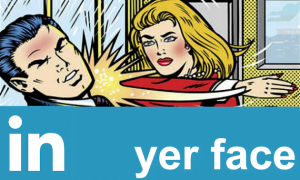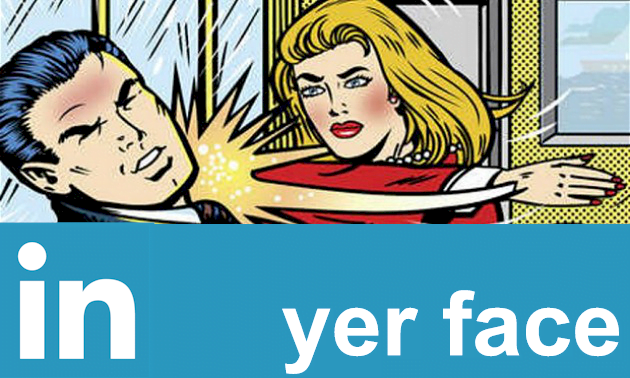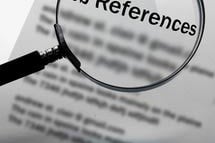In the October 20, 2015 Ask The Headhunter Newsletter, we get updates on career scams from the past and present. They never seem to go away, thanks to gullible job hunters and naive HR managers that keep funding these scoundrels.
It’s not your imagination
Scams are endemic in the career industry. The formula is simple: People desperate to earn a living will believe virtually anything that promises to help them land a job — and they’ll pay for it.
 This gives rise to questionable and often fraudulent businesses that peddle snake oil. Others re-package information and advice you can get for free — and charge thousands by calling it “outplacement” and “career coaching.” Some of these charlatans use career help only as a lure — they make their money by collecting and selling your personal data to third parties.
This gives rise to questionable and often fraudulent businesses that peddle snake oil. Others re-package information and advice you can get for free — and charge thousands by calling it “outplacement” and “career coaching.” Some of these charlatans use career help only as a lure — they make their money by collecting and selling your personal data to third parties.
Even job boards, which seem to be a high-tech analog of the old newspaper want ad, are largely a scam. Little has changed since I published Job-Board Journalism: Selling out the American job hunter in 2003. The media and the job boards are often in cahoots.
For example, employers still hire only about 10% of their new employees via job boards, yet dishwashers and CEOs alike are brainwashed to waste inordinate amounts of time and money diddling these databases.
It’s time for some updates on stories we’ve covered here before about TheLadders, LinkedIn, Toronto Pathways — and one new rip-off by prominent outplacement firm Lee Hecht Harrison.
TheLadders Goes Down
One of the most high-profile cases in recent years has been TheLadders, which rose to prominence on the ridiculous promise that it was selling “ONLY $100K+ jobs” and “ONLY $100K+” job candidates.
Executives, highly paid professionals, and other suckers for exclusivity flocked to TheLadders — right behind naïve HR executives trying to fill jobs. They wanted to believe they could pay someone to do the hard work of finding and filling top-level jobs.
But, it turned out, TheLadders wasn’t exclusive at all. One Ladders customer summed it up: “The ladders [sic] is a scam, plain and simple. A class action lawsuit sounds like a good idea.”
On March 12, 2013 a consumer class action was filed against TheLadders in U.S. District Court, New York. The suit alleged that:
“From its inception until September, 2011, TheLadders scammed its customers into paying for its job board service by misrepresenting itself to be ‘a premium job site for only $100k+ jobs, and only $100k+ talent.’ In fact, TheLadders sold access to purported ‘$100k+’ job listings that (1) did not exist, (2) did not pay $100k+, and/or (3) were not authorized to be posted on TheLadders by the employers.”
Here’s the list of dirty laundry aired in the complaint:
- breach of contract,
- breach of the implied covenant of good faith and fair dealing,
- violation of the Arkansas Deceptive and Unconscionable Trade Practices Act, and
- unjust enrichment.
The suit also alleged that TheLadders used phony “resume critiques” to induce people to pay for new resumes. After paying TheLadders for a new resume, one customer submitted it right back for a “free review” — and a Ladders “resume expert” warned that it needed to be re-written.
TheLadders retained a very expensive, big-name law firm to fight the charges. Judging from public court filings, TheLadders’ lawyers pounded the plaintiffs with paper. But David didn’t back down, and today Goliath is a faint ghost of its old self.
Update
In a May 22, 2014 Stipulation Of Dismissal, it seems both parties asked the Court to dismiss the case. When this happens, no information is released about any settlement that might have been made.
But I’d eat my hard drive if TheLadders didn’t pay a ton of money to the plaintiffs and their law firm to make this consumer class action go away. A company like TheLadders doesn’t pay top dollar to big-name lawyers to defend it and then cave, unless the facts are against it. My guess is the big-name law firm advised TheLadders that it would lose and that damages imposed by a court after a very public case might sink the company and its management entirely.
It would have been better to fight the case and let the public — and all Ladders’ customers — see all the dirty laundry hung out in court.
 TheLadders, of course, denied everything. But, TheLadders:
TheLadders, of course, denied everything. But, TheLadders:
- No longer claims it has “ONLY $100K+ jobs” or “ONLY $100K+” job candidates.
- No longer offers free “resume critiques.”
- No longer sells resume writing services.
- No longer “guarantees” a job to customers who pay $2,500 for resume and career coaching services.
- Operates like any other cheap job board.
Does that sound like TheLadders did nothing wrong? Its vaunted business plan as an exclusive career service was left in shambles. The company is a footnote in the career industry. Its founder, Marc Cenedella, went on to design an app that lets you rate your co-workers anonymously. A comment about the app on TechCrunch says it all: “Taking passive aggressive online behavior to a whole new level.”
 It didn’t take LinkedIn very long to go from “leading professional network” to becoming a clever manipulator of its website interface to scam its members out of their contact lists. (For more about the nefarious science behind user-interface scams, see Dark Patterns.) But there’s much more. In the past several years, LinkedIn:
It didn’t take LinkedIn very long to go from “leading professional network” to becoming a clever manipulator of its website interface to scam its members out of their contact lists. (For more about the nefarious science behind user-interface scams, see Dark Patterns.) But there’s much more. In the past several years, LinkedIn:
- Became just another job board that has earned immense criticism from its customers.
- Tried to tap the kid market with a questionable product to help 13-year-olds “start their careers off right.” (Personal data sales, anyone?).
- Wasted members’ time with “endorsements” that they claim are phony and useless.
- Told members to pay so their profiles would float to the top of employers’ search lists.
- Paid almost $6 million for U.S. wage law violations.
To the point of this update, LinkedIn customers sued in a consumer class action, alleging LinkedIn was using members’ mail lists to harass their contacts.
Update
Federal Judge Lucy Koh wrote:
the “emails could injure users’ reputations by allowing contacts to think that the users are the types of people who spam their contacts.”
LinkedIn spammed people on behalf of its members without their consent. Scripps Media reported that LinkedIn CEO Jeff Weiner “admitted that the site was guilty of ‘sending too much email’” via its “Add Connections” feature.
 LinkedIn recently agreed to pay $13 million to settle the class-action suit.
LinkedIn recently agreed to pay $13 million to settle the class-action suit.
Said CEO Jeff Weiner in another interview: “Values are the first principles we use to make day-to-day decisions.” Translation: The first principle is making money off you any way we can, and we’re as stupid as TheLadders because we count on you not to notice. Oops.
Toronto Pathways AKA Job Success
In February, 2012, Canadian CBC TV invited me to Toronto to review hidden-camera footage about a career scam. Executives at a career counseling company called Toronto Pathways — also known as Job Success — were caught on camera promising jobs to clients in exchange for thousands of dollars in fees.
We did a lengthy expose (Rip-Off Edition: Who’s trying to sell you a job?), and then a 7-minute special segment in which we educated consumers about the tip-offs to a career rip-off.
According to CBC News in Toronto, when Job Success failed to deliver a $70,000 job that it promised to a client for a fee of $3,700, he sued. The case was dismissed because Job Success claimed it didn’t promise anything.
Update
Enter the hidden camera. The plaintiff saw our CBC-TV “Recruitment Rip-Off” episode — and there was the guy who scammed him, caught red-handed!
The victim showed the video to the judge and argued that “the defendants were ‘slick liars who perjured themselves at trial.’” Based on our expose, a higher court is giving the victim another shot at his lawsuit based on the fresh video evidence.
Lee Hecht Harrison
When companies fire or lay people off, they pay big bucks to corporate outplacement firms to help those people find new jobs. (For more about the racket that outplacement has become, see Outplacement Or Door Number 2?) Or, they can just send their cast-offs to Ask The Headhunter for free articles, Q&A, and advice from me and thousands of smart job seekers who participate in the Ask The Headhunter community.
 This scam hits closer to home — and it reveals that some of the biggest names in the career industry are quietly ripping people off. Ironically, they’re hiding behind LinkedIn’s members-only wall to do it.
This scam hits closer to home — and it reveals that some of the biggest names in the career industry are quietly ripping people off. Ironically, they’re hiding behind LinkedIn’s members-only wall to do it.
Lee Hecht Harrison is one of the biggest outplacement firms in the world. It’ll also help you find a job — if you’ll pay. What does it deliver?
Michael Schumacher, Senior Vice President at Lee Hecht Harrison, steals Ask The Headhunter advice, and delivers it to his clients via the firm’s members-only LinkedIn Group.
Schumacher published an article under his name, titled “Sure Thing?? Hardly!!!”, three months ago. You can click the link, but you can’t read it unless you’re a paying member of LHH’s “Client & Alumni Group,” which has over 2,600 members. But, no worries — thanks to friends of Ask The Headhunter, you can see it here.
How I got ripped off
I wrote and published that article over 15 years ago, and it’s titled There is no sure thing.
It’s also copyright protected and Schumacher and Lee Hecht Harrison are in violation of U.S. Copyright Law. Schumacher’s petty edits underscore his rip-off.
Ask The Headhunter is a for-profit content licensing business that generates revenue from its protected works.
Ask The Headhunter is all about helping people get good jobs and keep them — but Michael Schumacher should be fired. His clients, who ratted him out to me and sent me his “work,” are wondering what Lee Hecht Harrison delivers for the fees it charges.
Update: November 24, 2015
Peter Alcide, President and COO of Lee Hecht Harrison, called me and did the right thing. In a tweet and a posting on the LHH website, he issued a public apology for violating Ask The Headhunter copyright, made restitution for misuse of the content, and the matter is resolved.
Career scams are everywhere
Just because you — or some big corporation — are paying big bucks to big-name companies for career services doesn’t mean you’re not getting scammed. Just look at TheLadders, LinkedIn, Toronto Pathways/Job Success, and Lee Hecht Harrison. They’re just the tip of the career-industry racket. Every day, another one gets exposed because consumers like you post your stories on websites like Ask The Headhunter.
In the meantime, these racketeers add funds to their legal budgets and buy their way out of infractions, blowing it all off as a cost of doing business. (Jeff Weiner says, “That needs to be corrected and improved, and it will be.”) The rest of us get ripped off.
Why does this continue? HR departments endorse and promote these practices every time they spend their corporate budgets on these bad boys of the career industry.
Many thanks to those friends of Ask The Headhunter who tipped me off to copyright violations. And a tip of the hat to all the plaintiffs who sued the scoundrels who ripped them off. This update tells us that consumers can fight back!
There’s an entire career industry scamming you and employers alike. We regularly bust career rackets and hang them out to dry. But scammers keep developing new ways to hook you, while HR continues to fund them. What new scams have you encountered? What old scams never seem to go away? Please post your comments and stories.
Special Note: If you belong to the Lee Hecht Harrison LinkedIn Group mentioned above, please drop me an e-mail.
: :




